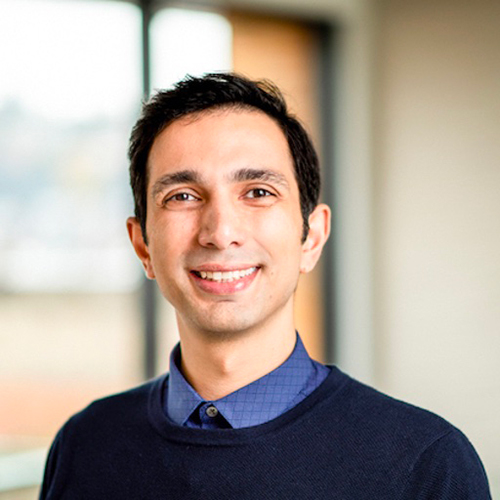Arman Cohan: Research at the Intersection of Machine Learning and Natural Language Processing
The School of Engineering & Applied Science is proud to welcome its newest faculty members for the 2022-23 academic year. The large influx of faculty members – 13 so far, with more to be announced soon – marks the rapid growth of the School and investment in the research areas illustrated in the SEAS Strategic Vision.
The latest faculty arrivals are valuable additions to the chemical and environmental, computer science, and electrical engineering departments. Their expertise includes sustainability, artificial intelligence, robotics, quantum computing, cybersecurity, and optoelectronic materials.
Upon their arrival, we asked these new faculty members questions about their work, their motivations, potential collaborations, and much more:

Arman Cohan, Computer Science
Hometown:
Tehran, Iran
Prior academic history:
I completed my undergraduate and masters studies at Amirkabir University of Technology in Tehran, Iran. I then completed my Ph.D. in Computer Science at Georgetown University, Washington, DC. After graduation, I have been a Research Scientist at the Allen Institute for AI (AI2) in Seattle, WA.
How would you summarize your research?
My research lies at the intersection of machine learning and natural language processing. I am particularly interested in language modeling, representation learning, and natural language generation. I am also interested in applications of natural language processing in specialized domains including science and health.
What inspired you to choose this field of study?
Since long ago, I was fascinated by the prospect of AI and all of its potentials. I wanted to understand how different AI models worked, what their limitations were, and how we could improve them. I became more interested in this field as I grew older, realized that it is continuously evolving, and that so much more remains to be discovered. Within AI, I became particularly interested in Natural Language Processing as I always found human language intriguing. I wanted to explore how we could get machines to better understand human language, how to have machines communicate better with us, and use language to their advantage. I believe that in the future AI and NLP are critical to help us solve many of the world's complex problems and I am passionate about learning and developing new techniques to help shape the future.
Where do you see the field 10 years from now?
The fields of Natural Language Processing and Machine Learning are moving very rapidly and it is hard to exactly predict how the field will look like in the next 10 years! But given the immense progress we've seen in the past 10 years, I'm quite optimistic about the future. I think we will move towards models that are an order of magnitude larger or significantly more capable of existing models. We will see more emerging properties of models, allowing them to solve language tasks that would have not been possible before. Related to this, we will likely see attempts at creating new datasets and benchmarks of very difficult language tasks to challenge the next generation of AI models. AI models will become even more widely accessible and applied in various fields such as finance, healthcare, law, etc. In addition, we will likely see that the boundaries between different AI fields will shrink, and we will see more general models that are able to perform well across a wide range of tasks, and domains from different subfields.
What brought you to Yale?
Yale University has been consistently one of the world's top universities. There are many renowned faculty members in Yale's computer science department, working on important and fundamental problems in various fields within CS. I was also impressed with Yale's rapid growth in the field of AI. I am looking forward to building my research group at Yale and extensive collaborations with other faculty and departments within Yale.
What areas outside of Computer Science do you seek to create impactful research collaborations or partnerships?
Outside CS, I am very interested in exploring interdisciplinary applications of AI and NLP in the medical, and legal domains.
Are there any courses that you look forward to teaching/creating?
There are several courses that I would love to teach and are related to my research within AI. These include general courses like Neural Networks, Machine Learning, AI, and Natural Language Processing, in addition to more advanced courses such as modern NLP and Language Models.
What are your interests outside of the lab?
I enjoy classical music, playing and watching soccer, photography, and exploring nature.
What is the best New Haven Pizza?
So far, I've only tried pizza at the BAR and it was my favorite! Looking forward to exploring more pizza places in New Haven.

